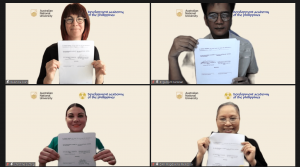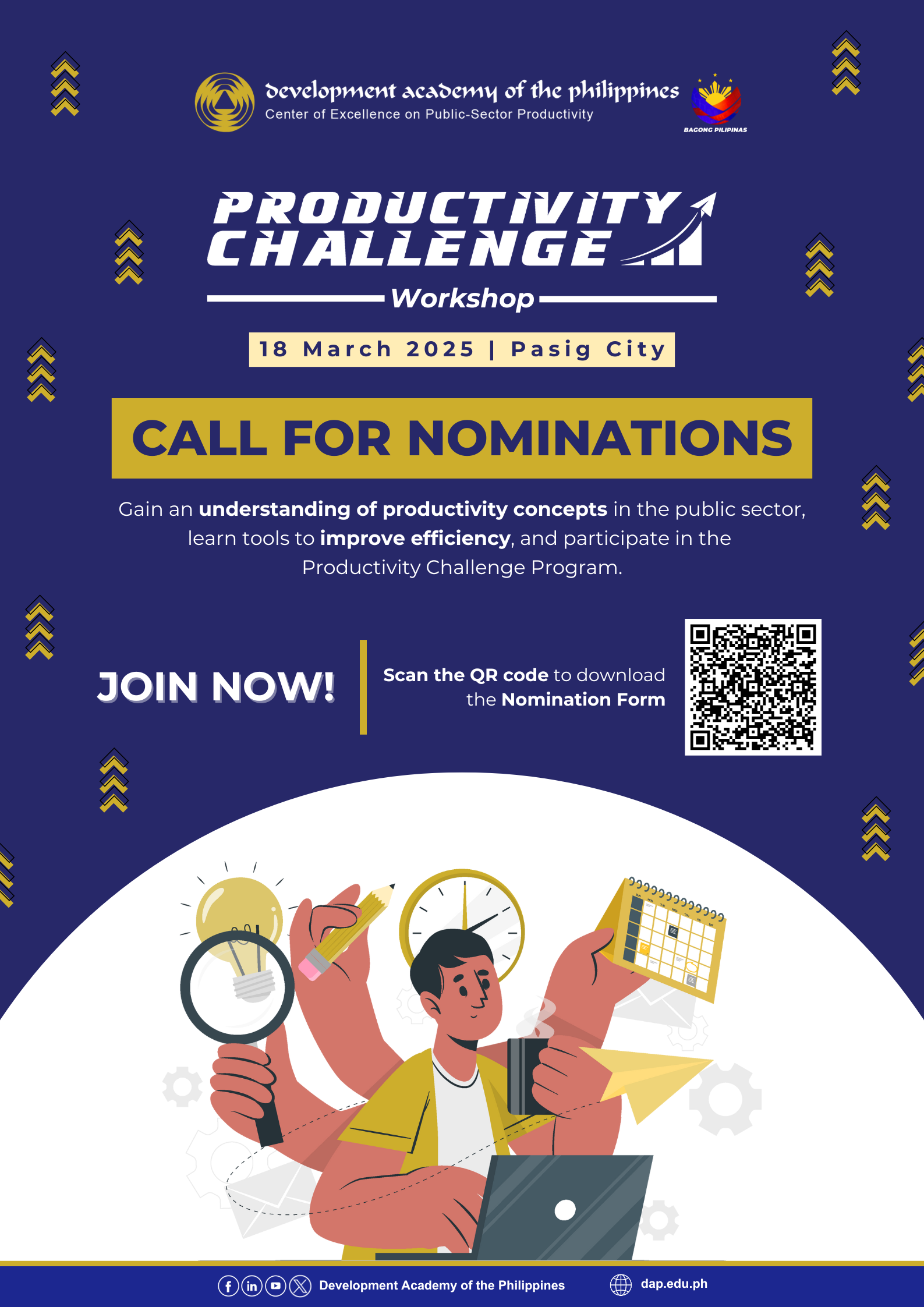The Development Academy of the Philippines (DAP) and the Australian National University (ANU) represented by the Crawford School of Public Policy sealed its first ever partnership through a memorandum of understanding (MOU), on August 30, via the Zoom platform.
DAP President and CEO, Atty. Engelbert Caronan Jr., and ANU College of Asia and the Pacific Dean Prof. Helen Sullivan served as the signatories for their respective institutions. Caronan was joined by Senior Vice President Magdalena Mendoza who served as the witness in the MOU signing ceremony. Vice President Imelda Caluen, Director Gilbert Lumantao and Acting Director Joanne Liezl Nuque also joined the roster of officers from the DAP.
Sullivan, on the other hand, was joined by Christine Cutting as the witness, Assoc. Prof. Shiro Armstrong, Kali Maden, Ida Wu Oliva Wenholz and staff from the ANU-Crawford School Executive Education, graced the signing event.
Caronan formally opened the event, stating that this is a strategic partnership which can achieve significant results in national, regional, and international context. “This partnership attests to our institutions’ shared commitment of using information and knowledge to effectuate change. For this, we look forward to designing and implementing more capacity building programs and other learning opportunities for the legislative staff and officers of the Philippine Senate and Congress,” he added.
Caronan also highlighted the DAP’s role as the National Productivity Organization of the Philippines, as it promotes productivity principles, techniques, and best practices across all sectors of the economy. “Through our programs, we help effect actual improvements in productivity, and develop the institutional infrastructure vital to sustained productivity enhancement. As the country’s NPO, DAP continues to reassess the situation and address current and emerging issues at the different levels and sectors.”

ANU and DAP senior officers show on virtual screen the signed MOU: (top, L-R) Prof. Helen Sullivan, Atty. Engelbert Caronan; (bottom, L-R) Christine Cutting, SVP Magdalena Mendoza
Meanwhile, Sullivan conveyed that these partnerships and opportunities for collaboration will enable the ANU to share the expertise and experience of globally recognized academics and public figures who work and engage with the College and the School on public policy, public service, governance, and legislation.
“We are equally committed to ensuring that the programs we will co-create with you are timely, relevant, and of course useful for our course participants. We hope that this academic collaboration will bring about learning outcomes that will shed light on and lead to resolution of some of the most pressing policy issues in the region,” she added.
Sullivan also stressed that the College of Asia and the Pacific hosts the largest number of regional experts and specialist academic programs in the English speaking world and plays a vital role in informing public policy and Australia’s intellectual engagement with the societies, cultures, and economies of Asia and the Pacific. Further in her speech, she emphasized that although the College remains unique for its regional focus, it also has an unwavering commitment to disciplinary strength, particularly in political science, economics, history, anthropology, law, archeology, and linguistics, with an enviable international standing across all of these disciplines.
“With the College’s focus on Asia and the Pacific more relevant now than ever, ANU is indisputably the best place to prepare the next generation of regional specialists for the challenges of the Asian century,” Sullivan underscored.
Anchoring on Sullivan’s message, Armstrong, director for International Partnerships and Education, underlined that Crawford School plays a critical role in the transformation of society through public engagement, deep research and teaching. He said that the School pursues a deeper understanding of Asia and the Pacific, and Australia’s contribution to the region through teaching, research and engagement and policy impact.
“I want to explore how we can deepen our many relationships around the region and initiate new strategically important relationships. I think our engagement with leading regional centers of policy thinking, like the DAP, is central to our ability to collectively shape better outcomes, especially in times like these of such uncertainty. The natural alignment between the DAP and the Crawford School, is going to be very exciting for influencing policies, building that think-tank capacity in the public sector. And I look forward to being part of this exciting agenda going forward,” he added.
This partnership seeks to open more opportunities to collaborate on programs and projects that will help capacitate individuals in areas such as public policy and public administration aimed at improving the Philippine government’s service delivery to the public.
In 2020, the DAP, through its Center for Governance, and the Crawford School designed and implemented the International Learning Course on Public Policy and Public Sector for Senior Leaders, a salient component of the Capability Building and Innovative Leadership for Legislative Staff (CBILLS) program. Earlier in 2019, the CBILLS sent a delegation composed of legislative staff from the Senate of the Philippines and House of Representatives for an Observation Study Mission at the ANU.
The Crawford School of Public Policy at The Australian National University is Asia and the Pacific’s leading graduate public policy school.




